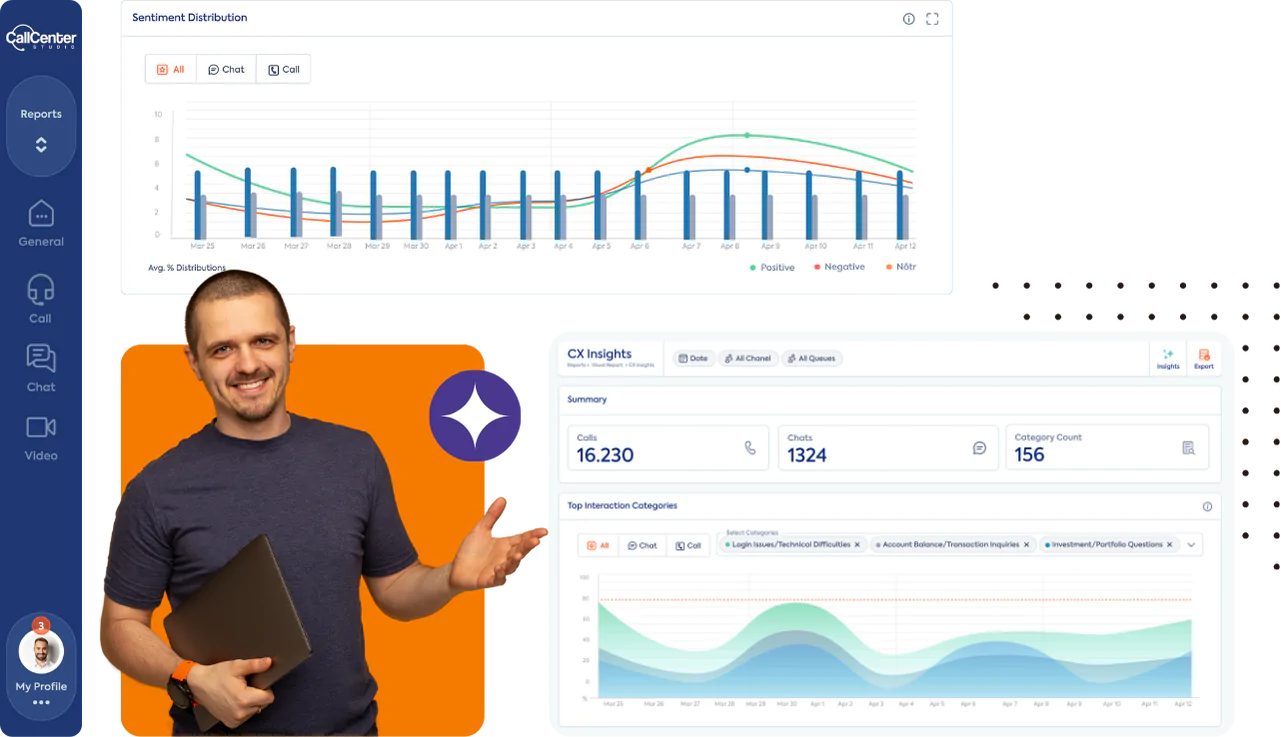If you are thinking about moving your contact center to the cloud, this guide is going to be your roadmap.
Here are 8 practical reasons to consider call center migration and why it’s not a tech upgrade but also a strategic move.
First of All: Why Do Some Businesses Still Hesitate?
Cloud call center benefits are unbelievable; however, we see that some businesses are still hesitant. We explain why, and how to pass it👇🏼
- Fear of Disruption During Migration: Many businesses worry that switching systems will cause downtime, data loss, or a hit to service quality.
- Solution: Look for a provider with a proven on-premise to cloud migration framework, zero-downtime tools, and white-glove onboarding.
- Security, Security and Security: People think handling sensitive data in the cloud is risky.
- Solution: Look for cloud communication solutions with end-to-end encryption, compliance certifications (like GDPR, HIPAA), and enterprise-grade security.
- Sunk Cost in Legacy Infrastructure: Companies with heavy investments in on-prem hardware feel locked in.
- Solution: A hybrid model lets you test cloud migration for call centers while still using your existing tech stack.
- Internal Resistance to Change: IT or leadership might fear loss of control or face change fatigue.
- Solution: Pick a cloud-based call center with a user-friendly interface and strong change management support.
Now, let’s dive into the top benefits…
1) Cost Savings Without Compromising the Quality
Cutting costs. That is the most immediate benefit of a cloud call center.
When you have a traditional, on-premise call center you have to deal with expensive hardware, licensing fees, ongoing maintenance, and in-house technical staff.
On the contrary, cloud communication solutions:
- Operate on a pay-as-you-go model.
- You only need an internet connection, a computer, and a headset.
- No server room required.
With cloud call center benefits like lower CapEx and fewer IT headaches, you can allocate resources toward innovation and CX improvements rather than upkeep.
2) Faster Deployment, Faster Results
When you decide to move your contact center to the cloud, the process completes in days! A cloud-based call center offers plug-and-play simplicity. However, on-premise installations need:
- Provisioning servers,
- Configuring software, and
- Coordinating IT teams.
✔️Keep in Mind: This speed to value is critical when responding to market changes or seasonal spikes in customer demand.
3) Seamless Integration Across Tools
Modern cloud call centers are built for integration.
Whether it’s your CRM, ERP, or messaging platforms like WhatsApp Business or Facebook Messenger, a robust CCaaS (Contact Center as a Service) solution makes it easy to centralize customer interactions.
✔️Keep in Mind: As the call center technology industry evolves toward agentless interactions, integration is mission-critical.
4) User-Friendly by Design
Cloud-based call centers have to be easy to use. Because they promise that. Instead of juggling multiple interfaces, your agents should have one intuitive dashboard that centralizes customer data and interactions.
So your agent’s performance increases and your training times shorten.
5) No More IT Bottlenecks
Say goodbye to costly technical support teams. With remote call center solutions, system updates and maintenance are handled by your cloud provider. That means your internal team can focus on strategy rather than troubleshooting.
Good to Know: Plus, non-technical staff can manage configurations without writing a single line of code.
6) Built to Scale with Your Business
Scalability in call center operations used to mean adding new servers and phones. But now it’s as simple as clicking a button.
Whether you’re handling a seasonal surge or launching a new product, cloud migration for call centers makes it easy to scale up (or down) based on demand.
No hardware, no delays, no limits.
7) Work From Anywhere, Serve Everywhere
The rise of the virtual contact center means your agents can work from anywhere: home, another city, or even another country.
Moving your call center to the cloud opens up a broader talent pool and supports flexible work policies without sacrificing performance.
This level of accessibility provides a competitive advantage in today’s talent market.
8) You Get Real-Time Reporting and Smarter Analytics
With a cloud-based call center, you are able to track agent performance, call volume, customer sentiment, and marketing campaign ROI in real time.
Plus, cloud contact centers use smart tools to help you create customized reports. That’s going to improve customer experience and boost operational efficiency.
Thinking About Cloud Migration for Call Centers?
Moving from on-premise to cloud migration doesn’t have to be overwhelming. Whether you’re exploring a new cloud-based tool or looking to upgrade your current infrastructure, we’re here to help.
Call Center Studio is built for modern businesses that are scalable, secure, and designed to grow with you.
- Book a free Demo today to benefit from new-age call center technology.







